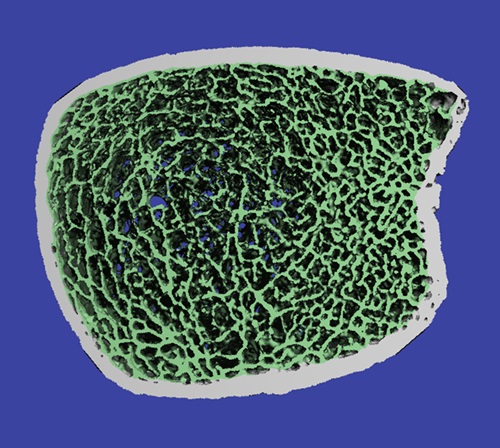Innovative Imaging Technique Helps Assess Bone Loss after Bariatric Surgery
Posted on 05 Jun 2024
Bariatric surgery provides substantial health improvements for individuals with severe obesity, although it is linked to bone mass reduction, potentially heightening the risk of fractures. A new study will now use an advanced imaging technique to assess bone loss after bariatric surgery.
Researchers at Wake Forest University of School of Medicine (Winston-Salem, NC, USA) will examine the bone microarchitecture of patients who have undergone bariatric surgery. They will partner with Virginia Tech (Blacksburg, VA, USA) to incorporate a virtual biopsy using high-resolution peripheral quantitative computed tomography (HR-pQCT) into an existing randomized controlled trial. The trial, named Strategies to Reduce the Onset of Sleeve Gastrectomy Associated Bone Loss (STRONG BONES), aims to determine if the osteoporosis medication risedronate can reduce the bone and muscle loss typically seen after weight-loss surgeries.

The HR-pQCT scanner is an advanced imaging tool that employs a low-dose radiation method to evaluate bone mineral density and the detailed structure of bone. This scanner stands out from other imaging options by enabling the use of high-resolution imaging techniques to produce exceptionally detailed bone characterizations. Through these analyses, researchers can better understand the potential for fractures and the overall fragility of the skeleton. The STRONG BONES study will enroll 120 participants over 40 years old who are undergoing sleeve gastrectomy—a surgical weight-loss procedure that involves removing part of the stomach to decrease its size significantly. These participants will either receive six months of risedronate treatment or a placebo, and all will undergo HR-pQCT scans before, during, and after the treatment period.
“We are able to combine this high-resolution imaging with computational modeling to understand how bone strength changes following surgery and in response to the intervention,” said Caitlyn Collins, Ph.D., assistant professor of biomedical engineering and mechanics at Virginia Tech and a co-investigator on the ancillary study to the STRONG BONES trial. “This gives us a more in-depth understanding of how and where risedronate may be affecting bone remodeling in our study participants.”
Related Links:
Wake Forest University
Virginia Tech








 Guided Devices.jpg)





